- Home
- David Lubar
Character, Driven Page 6
Character, Driven Read online
Page 6
On my way out, Mr. Piccaro slipped behind me and said, “I trust you enjoyed Pilgrim’s progress.”
“And his regress,” I said. I took the package from him. I’d already put Slaughterhouse-Five in the dead drop. The new book, also fairly slim, was a collection of short stories by a guy named Philip K. Dick. I’ll admit, I laughed at the name. But I stopped laughing when I started reading at work that evening. The stories were totally off the wall, in amazing ways. It turned out a fair number of them had been made into movies.
* * *
THERE WAS A new sub on Tuesday. She looked pretty young, like maybe she’d been out of college for no more than two or three years. She had short brown hair and the body of a long-distance runner. I wondered whether she’d beat Mr. Strawbroke’s endurance record.
“I’m Ms. Ryder,” she said after we’d all taken our seats. “Mr. Tippler will be out for a while.”
“Busted!” Clovis said. He let out a snort and exchanged a high five with Juke Johnson, one seat over.
“Arrested for disorderly conduct, public intoxication, and several other charges,” Ms. Ryder said. “Does this mean he’s been convicted of a crime?”
“For sure,” Clovis said.
Ms. Ryder looked past him, toward Zach’s raised hand. “What do you think? Has he been convicted?”
“Nope,” Zach said. “You can get arrested if they’re suspicious, or if someone narcs you out, but they need evidence to convict you. And a trial.”
About half the class snickered, mostly because we knew that Zach had been busted more than once. I guess the substitute picked up on that.
“Are you speaking from personal experience—” She glanced at the seating chart. “—Mr. Stone?”
“Sorta,” he said. “About the arrested. Not the convicted. My dad’s a lawyer.”
“And you’re his best client,” Peter said.
“Well,” Ms. Ryder said. “Hopefully, if I do my job correctly, and you all do yours, you’ll learn some important things about your rights. I can’t force you to be interested in government. But I can try to convince you that there are lessons ahead of us that are worth learning. Letting someone take your rights is as bad as letting them take your wallet. Maybe worse.”
“I’d like to take your phone number,” Juke said.
A deep silence cloaked the room.
I watched her face but saw no sign of a reaction other than a slight narrowing of her eyes, as if she were focusing on a target. She walked over to Juke’s desk. He smirked at Clovis, then held out his notebook in one hand and a gnawed yellow pencil in the other, offering them to Ms. Ryder. She ignored the stationery, leaned close to him, and, in a loud whisper, said, “Children who play with fire get burned, little man.”
It wasn’t so much the words—it was the way she said them, and the look in her eyes. The fearless-gunslinger look she shot at him and the dead-calm tone in her voice said, Don’t fuck with me. She held the stare until he looked away. Then, she walked back to her desk. I could see Juke’s face growing red, like he’d leaned too close to a fire.
Government, I realized, was finally going to get interesting.
The Art of Self-Deception
THE PAINTING WAS looking good. I’d added a large eye in the sky, partially hidden behind wisps of cirrus clouds, and put a rose on the ground. The eye stood for the way everybody was watching everybody else all the time. I guess it also was inspired by one of the Philip K. Dick stories I’d read, where a guy is sure he is being watched. The rose was because I’m good at roses. We’d learned to paint them in third grade, when we were making trivets for Mother’s Day. Dalí painted an amazing rose, but it’s not as well known as his melting watches.
I’d worked slowly all last week, hoping Jillian would stop to take a look at my canvas as she walked past on the way to her easel. Eventually, my homage to Dalí and video games (with a nod to Magritte and a wink to P. K. Dick) was finished. And it was pretty good.
Jillian hadn’t said a word about my work. But two freshmen and one sophomore told me it was awesome, and Abbie had informed me it was “painfully derivative,” and “simplistic in its symbolism,” which was high praise from her.
Maybe I really can be an artist, I thought as I lifted the painting off the easel. I know Ms. Gickley had told me to take my time. To her, “time” probably meant months. But I’d spent a whole week on this one, both during Art and during my free period, which was longer than I’d spent on anything else I’d ever worked on in class this year. Or any year. I know kids sometimes spend a whole marking period on a single piece. Zach had gotten permission to paint a mural on the side of the equipment shed by the football field. Abbie was doing an enormous mosaic on a third-floor wall at the rear of the old part of the school, celebrating her academic achievements, and two other students were working together on a giant welded abstract sculpture. But that sort of long-term project wasn’t my style.
“You are done,” I said. I glanced in Jillian’s direction, but she was deeply involved with her painting and seemed unable to process any sounds I made. If I ever had to warn her about a fire, or a venomous snake, she was doomed. On the other hand, if I were to even whisper sweet ass, I’m sure I’d have her complete attention.
Well, at least I had a new work of art to feel good about. The painting would look even better in a frame. The shop teacher, Mr. Xander, had a stack of them in his supply closet. He liked to make them after school, and he’d offered art students free choice whenever they needed one. He was kind of a scary guy. He shouted even more than Mr. Tippler, and he was missing two fingers on his left hand. But I didn’t take shop, so I didn’t really care how mean he was.
I left the Art House, crossed the parking lot, and entered the school. As I reached the corridor that led to the shop class, I ran into Mr. Yuler, who was coming out of the teachers’ lounge with a coffee mug clutched in one hand. There was a rumor that he’d sold his soul to the devil in exchange for eternal life, but part of the bargain was that he’d die if he ever went more than thirty seconds without taking a sip of coffee. The mug looked large enough to cover him for the next hour or so. As I passed him, he pointed at the canvas.
“Painting?” he asked.
“Yeah.” I realized I was carrying it with the back side out.
“Let me see.”
I turned it around so the painted side was facing him, eager to show him I was more than just another of the countless math students he’d taught. I’d bet he’d never seen anything this creative—especially not during a random encounter in a school hallway.
I tracked his pupils as they shifted from spot to spot. He seemed to be studying every aspect of my creation with a great deal of care. I wondered whether I should point out some of the symbolism to him. But he was really smart. I was sure he’d figure out most of it himself.
Maybe he was even thinking of offering to buy it. That would be amazing. I could just see myself waving a handful of cash in Dad’s face and waiting for him to ask where it came from.
“Art.” That’s all I’d say.
Finally, Mr. Yuler raised his eyes back to meet my own and shared his opinion of my painting. “Garbage.”
It wasn’t exactly like a football to the head or a slap to the face, but it definitely struck me with a numbing and unexpected impact.
“Uh … thanks.” Great. My art was getting criticized by a guy who’d never uttered more than a half dozen words at a time. He was a stupid math teacher. What did he know about art? They were totally separate fields.
Flashes of Leonardo da Vinci’s mechanical drawings ran through my mind. Okay, maybe math and art had some connection. Escher followed on the heels of Leonardo. They ran into Mondrian at the town square, where he was having lunch with several architects.
As Mr. Yuler walked away, I switched off the math/art show in my mind, held the painting up at arm’s length, and tried to look at it objectively.
Garbage?
It looked fine to me. More tha
n fine. It looked awesome. It wasn’t like something Jillian would paint. My execution wasn’t perfect. My objects didn’t appear so realistic that you could pluck them off the page. But the canvas totally spurted ideas. I was all about the concept. It was okay to let the viewer fill in some of the details. Picasso and Pissarro didn’t need to make exact duplicates of things. An artist isn’t just a flesh-and-blood camera or photocopier.
Garbage …
Asshole.
Of course, it was possible he just didn’t realize what the objects were supposed to be. I’ll admit the control pad was a bit crude. I’d done it from memory, rather than bringing in a model. I suppose it’s hard to appreciate symbolism if you have to guess at the symbols. Maybe I should give it another couple days, so I could tweak the rough edges and add a few more details. That wouldn’t hurt.
On Wednesday, I tried to work on my painting, but I wasn’t feeling very artistic. I sat and stared at it all through my free period, trying to see it with new eyes.
At one point, Ms. Gickley walked through the room, leaned over my shoulder, pointed to the bottom of the canvas, and said, “Nice carnation.”
When my regular Art period started, Jillian came in and set up her paints. I turned around on my stool and looked into the other room at her painting. Against the blue background, which remained unchanged and uninteresting, she had the half-peeled orange, a jade green Buddha, a woolen glove, a sliced onion, a glass half full or—you know it’s coming—half empty, and an electric drill. The drill was new. From what I remembered, she’d originally sketched in some sort of train engine. I guess she’d erased it the other day and replaced it with the drill. Nothing was scaled. Each object was roughly the same size on the canvas. They were arranged in a two-by-three rectangle, with enough space between them that none of the objects touched.
I slid off my stool, inched closer, and watched her work. She was using a tiny brush, the smallest available in the supply closet, to put on minuscule daubs of paint. It looked like she was working from memory, too, or imagination, because she didn’t have any models or photographs in front of her. I was definitely impressed. Despite Abbie’s disdain for photo-realism, the ability to create a realistic image from memory, or imagination, had to be pretty rare.
Jillian glanced over her shoulder long enough to have noticed me, then turned her attention back to her painting. Maybe light rays reflecting from my body were as undetectable to her as sound waves emanating from my throat. Maybe she just didn’t like people. I hadn’t seen her talking with anybody since she got here. Maybe I should stop trying to guess what was in her head and just ask her.
Speak, I told myself. The automatic responder in my humor center replied to that command with a mental yelp of Arf! But I dug deeper into my brain, figuring I could manage a simple conversation about something we both loved. Given how amazing a painter she was, she had to love art. We definitely had that passion in common.
Gathering my courage, and hating the fact that the seemingly trivial act of uttering a simple string of words required any sort of bravery, I drew in the breath required to speak a complete, articulate sentence to Jillian.
Admit Two
“WHAT’S IT MEAN?” I asked.
“Mean?” She slowed her brushstrokes briefly, but didn’t stop painting details on the lotus-folded Buddha legs or look back in my direction.
“Yeah. I think I get the symbolism. Buddhism is deep, and the onion has many layers. A drill goes deep, too. Is that what you’re going for? Something about depth in religion, nature, and man-made objects?” I liked that interpretation, but knew it was incomplete. I struggled to uncover some sort of symbolic depth in a glove or a glass of water. You can shove your hand deep into a glove, but that seemed too obvious. The glass wasn’t tall enough to be considered deep. Maybe the water represented the ocean.…
Jillian turned all the way around. “I’m not going for any kind of meaning. I like the way they look together. I like painting interesting objects. What does the Mona Lisa mean? What do Monet’s Water Lilies mean?”
“Oh … Okay.” I backed away and simultaneously struggled to find some hidden meaning in the Mona Lisa that would make me seem both appealingly clever and suitably datable.
I failed.
Damn you, Leonardo.
I had the feeling art meant completely different things to Jillian than it did to me. But that didn’t change the fact that I was dying to get to know her better. It just showed me that art wasn’t the answer.
* * *
THAT NIGHT AT dinner, Mom asked, “Did you order those concert tickets?”
“Tickets are a waste of money,” Dad said. “We’re spending just a little too freely around here. First, we go out for an unnecessary dinner. And wasn’t that a wonderful experience? Now you’re talking about entertainment. That has to stop. You’re bleeding me dry.”
“Don’t worry,” I told him. “The cheap tickets were sold out. I can’t afford the other ones. I’m not going.”
“That’s for sure,” he said.
That evening, as I was stamping absurdly high prices on absurdly small jars of marinated mushroom caps, I started to calculate how many hours I’d have to work to make enough money for two of the good concert tickets. When I saw the answer was definitely going to slip into double digits, I decided I’d be happier not knowing exactly how pathetic my earning power was.
The next day, when I got home from school, I saw an envelope on my desk. I recognized Mom’s handwriting. Cliff. For you and a friend.
I opened the envelope and found myself face-to-font with two tickets to the Mack and Mary concert. Sweet-ass bitchin’ awesome! Far too soon, the thrill got tamped down by a rush of guilt. Dad was right. We really didn’t have money for stuff like that. I guess Mom knew how much I wanted to go. And I guess she didn’t want to make a big deal of it. She probably also didn’t want to have any complaints from Dad, which was why she’d left the tickets up here in my room. I had a feeling I shouldn’t mention the concert around him. But I needed to thank Mom right away.
I found her outside, putting mulch down in the small flower bed that ran along the back of the house next to the picnic table. I checked to make sure there were no open windows that would carry my voice inside.
“Thanks,” I said, kneeling next to her. “You didn’t have to do that.” I liked the sharp cedar tang of the mulch. It reminded me of hiking in the fall.
“You work hard,” she said. “You deserve some pleasure.”
“You work hard, too,” I said. “You could have bought something for yourself.”
She smoothed out a small mound of mulch underneath a hydrangea. “I did,” she said. “I bought my son some happiness. Memories are a much better investment than things.”
I realized any argument I raised would only rob her of some of the vicarious pleasure she’d purchased. So I thanked her again and joined her at the pleasantly mindless landscaping task.
Even though I felt bad about Mom spending the money, I was glad she got me two tickets. I knew I’d look like a total loser if I went to the concert by myself. People noticed things like that. I’d gone alone to the movies once, when I was ten. Three of the kids in my class mocked me about it for weeks afterwards. Yeah, Clovis was one of them. A lot of kids from school would probably be going to the Mack and Mary concert. There’s no way I could pull off a solo appearance without giving ammo to the haters and mockers.
I asked Jimby about the concert that evening, when he wandered over to say hi.
“I can ask my mom, but she’ll say no,” he said.
“You sure?”
“Pretty sure. Yeah. I’m positive. She likes me home at night.”
“I don’t blame her,” I said. “You’re good company.”
That earned me a grin. But I knew he was right. As far back as I could remember, his mom had never liked him going out at night. I think she wanted him around in case she passed out and started to choke on her own vomit. If I had a place where h
e could stay, and parents who would feed an extra kid, I’d kidnap him and bring him home. I think Mom would welcome him in a heartbeat. On the other hand, Dad would kick him right back out the way he came in.
The next morning, while we were waiting for the first bell, I asked Robert about going with me to the concert.
“That kind of music causes me to die inside,” he said. “Even the thought of it weakens me.”
I asked Butch.
“I’ll be out of town with my folks. Why don’t you ask a girl?” Butch suggested. “You know. Like a date.”
“I could do that,” I said.
“I know you could,” Butch said, slapping me on the back. “But I’m afraid you won’t.”
“Maybe I will.” I guess I’d been so used to my dateless life—and so obsessed with Jillian, who I couldn’t possibly ask out—that I hadn’t even considered using the tickets as a springboard to a date with someone else.
And, in truth, I had other reasons to be a bit hesitant about asking a girl out. You know about the wet snake. But that’s not the end of the story. I need to expose one last piece of Maddie’s tale. (That definitely didn’t sound right.) It turns out there are far worse things in life than a waterlogged carnival prize.
Escape Window
MADDIE—WHO NEVER had the chance to admire my gift snake, or look it in the mouth—was still the center of my fantasies and the focus of my obsessions when school resumed. The transition from seventh to eighth grade had failed to help me see myself or my delusions more clearly. The snake had taught me nothing.
We went on another date. A movie, this time. That outing was as awkward and unromantic as the other excursions. We did kiss once, standing in her driveway. It was a sterile, passionless meeting of tightly closed lips, not all that dissimilar from being tapped gently in the face with a pine board by someone who doesn’t really want to hurt you. She broke it off quickly. But to my testosterone-fueled brain, that kiss was evidence that Maddie and I were destined to form a lasting relationship.

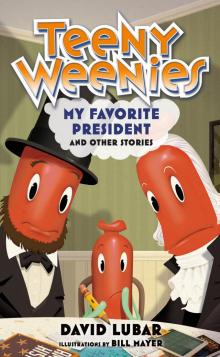 Teeny Weenies: My Favorite President
Teeny Weenies: My Favorite President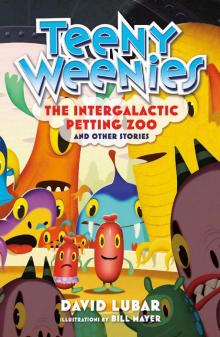 Teeny Weenies: The Intergalactic Petting Zoo
Teeny Weenies: The Intergalactic Petting Zoo Teeny Weenies: The Eighth Octopus
Teeny Weenies: The Eighth Octopus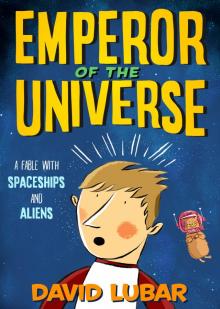 Emperor of the Universe
Emperor of the Universe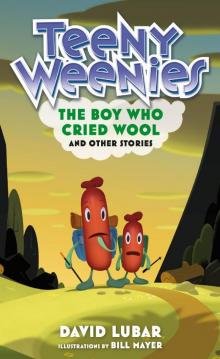 Teeny Weenies: The Boy Who Cried Wool
Teeny Weenies: The Boy Who Cried Wool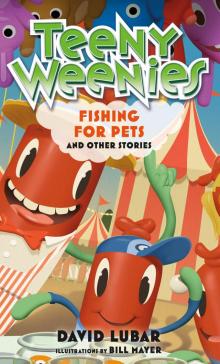 Teeny Weenies: Fishing for Pets
Teeny Weenies: Fishing for Pets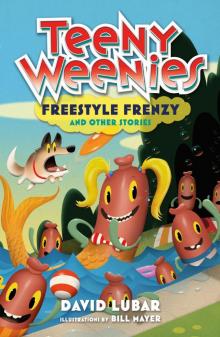 Teeny Weenies: Freestyle Frenzy
Teeny Weenies: Freestyle Frenzy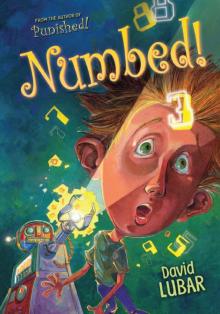 Numbed!
Numbed!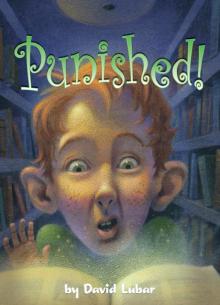 Punished!
Punished!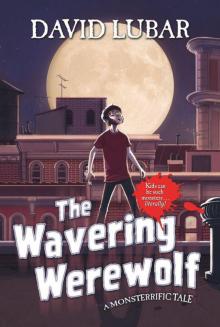 The Wavering Werewolf: A Monsterrific Tale (Monsterrific Tales)
The Wavering Werewolf: A Monsterrific Tale (Monsterrific Tales)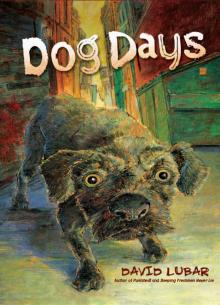 Dog Days
Dog Days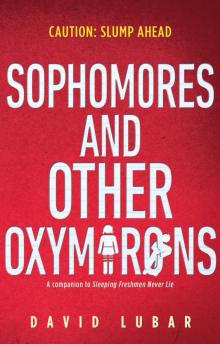 Sophomores and Other Oxymorons
Sophomores and Other Oxymorons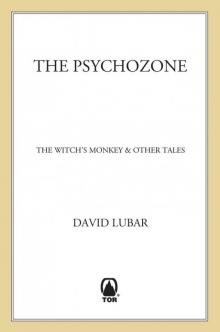 The Psychozone
The Psychozone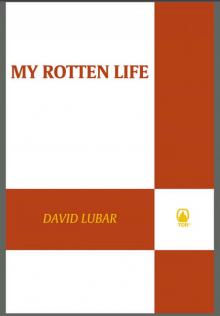 My Rotten Life
My Rotten Life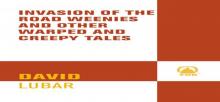 Invasion of the Road Weenies
Invasion of the Road Weenies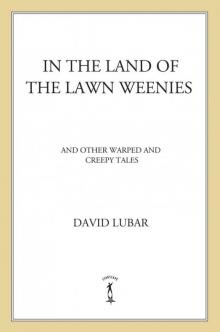 In the Land of the Lawn Weenies
In the Land of the Lawn Weenies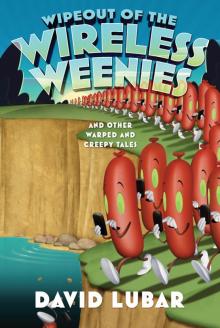 Wipeout of the Wireless Weenies
Wipeout of the Wireless Weenies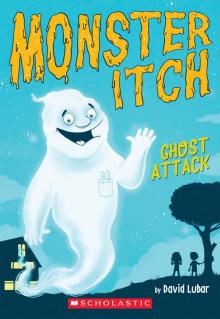 Ghost Attack
Ghost Attack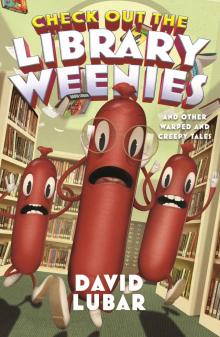 Check Out the Library Weenies
Check Out the Library Weenies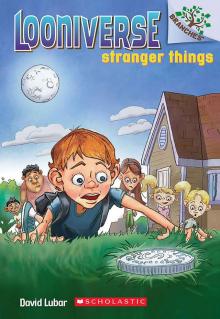 Looniverse #1: Stranger Things (A Branches Book)
Looniverse #1: Stranger Things (A Branches Book)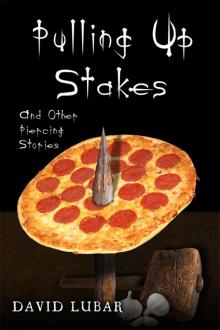 Pulling up Stakes and Other Piercing Stories
Pulling up Stakes and Other Piercing Stories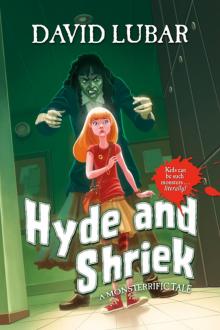 Hyde and Shriek
Hyde and Shriek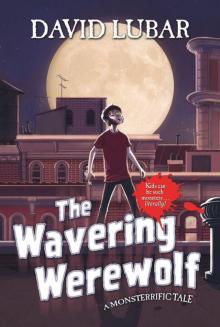 The Wavering Werewolf
The Wavering Werewolf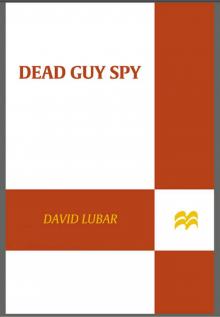 Dead Guy Spy
Dead Guy Spy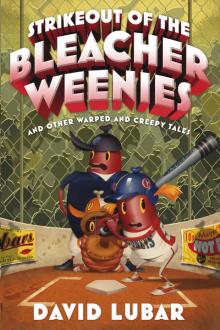 Strikeout of the Bleacher Weenies
Strikeout of the Bleacher Weenies The Big Stink
The Big Stink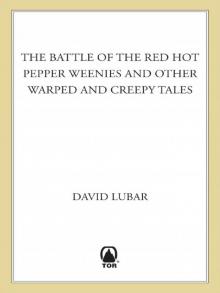 The Battle of the Red Hot Pepper Weenies
The Battle of the Red Hot Pepper Weenies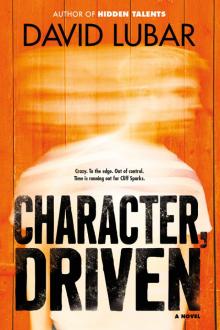 Character, Driven
Character, Driven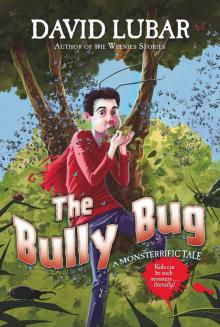 The Bully Bug
The Bully Bug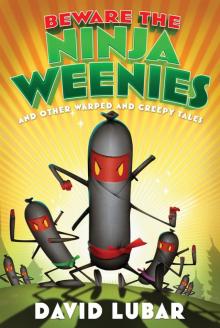 Beware the Ninja Weenies
Beware the Ninja Weenies Extremities: Stories of Death, Murder, and Revenge
Extremities: Stories of Death, Murder, and Revenge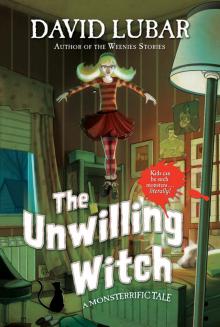 The Unwilling Witch
The Unwilling Witch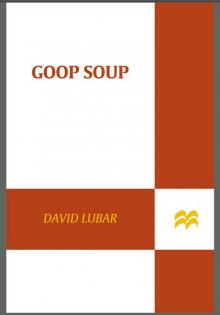 Goop Soup
Goop Soup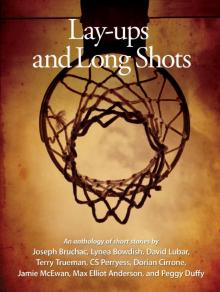 Lay-ups and Long Shots
Lay-ups and Long Shots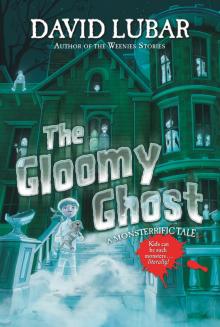 The Gloomy Ghost
The Gloomy Ghost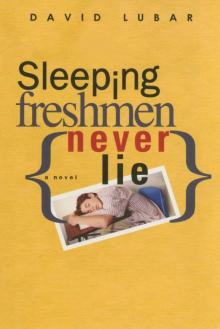 Sleeping Freshmen Never Lie
Sleeping Freshmen Never Lie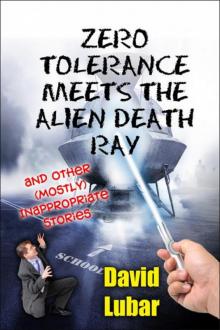 Zero Tolerance Meets the Alien Death Ray and Other (Mostly) Inappropriate Stories
Zero Tolerance Meets the Alien Death Ray and Other (Mostly) Inappropriate Stories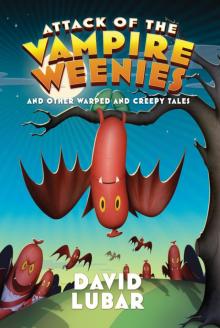 Attack of the Vampire Weenies
Attack of the Vampire Weenies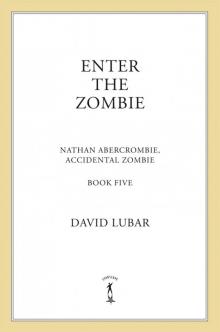 Enter the Zombie
Enter the Zombie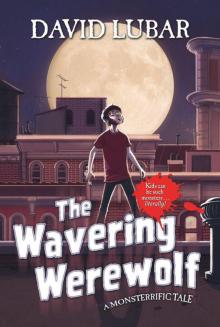 The Wavering Werewolf_A Monsterrific Tale
The Wavering Werewolf_A Monsterrific Tale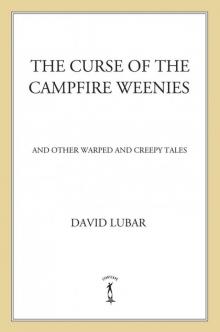 The Curse of the Campfire Weenies
The Curse of the Campfire Weenies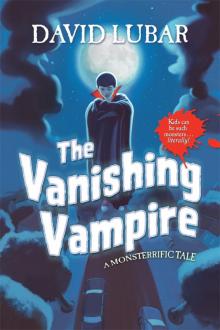 The Vanishing Vampire
The Vanishing Vampire